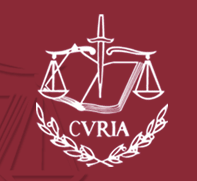The European Court of Justice this morning ruled that content owners can not strong-arm Internet service providers (ISPs) into filtering out copyright-infringing content.
This case has its origin in a dispute between ISP Scarlet and SABAM, a Belgian management company responsible for authorizing the use by third parties of the musical works of authors, composers and editors. In 2004, the right-holders group established that users of Scarlet’s services were downloading such musical works from its catalogue by means of peer-to-peer (p2p) file-sharing networks.
Belgium’s Court of First Instance ordered Scarlet, on pain of a periodic penalty, to bring those copyright infringements to an end by making it impossible for its customers to send or receive in any way electronic files – a filter, in other words. Scarlet appealed the decision, claiming the ruling was incompatible with EU law as well as the e-Commerce Directive.
Indeed, EU law says national authorities must not adopt measures which would require an ISP to carry out general monitoring – let alone filtering – of the information that it transmits on its network.
Thus, Europe’s highest court this morning ruled:
The Court finds that, in adopting the injunction requiring Scarlet to install such a filtering system, the national court would not be respecting the requirement that a fair balance be struck between the right to intellectual property, on the one hand, and the freedom to conduct business, the right to protection of personal data and the right to receive or impart information, on the other.
Accordingly, the Court’s reply is that EU law precludes an injunction made against an internet service provider requiring it to install a system for filtering all electronic communications passing via its services which applies indiscriminately to all its customers, as a preventive measure, exclusively at its expense, and for an unlimited period.
The European Court of Justice said the filtering system would also be liable to infringe the fundamental rights of an ISP’s customers, namely their right to protection of their personal data and their right to receive or impart information.
The court also said that while intellectual property rights are enshrined in EU law, there is “nothing whatsoever in the wording of the Charter or in the Court’s case-law to suggest that that right is inviolable and must for that reason be absolutely protected”.
Common sense, really, but always good to see a court agree with it.
